detail profile j edgar hoover
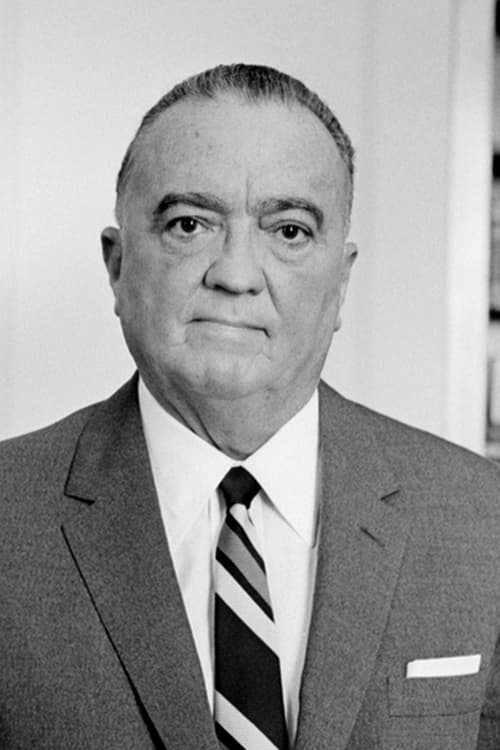
Riwayat Hidup
John Edgar Hoover was an American law enforcement administrator who served as the first Director of the Federal Bureau of Investigation of the United States.
Info Pribadi
Peran Yang Di Mainkan J. Edgar Hoover
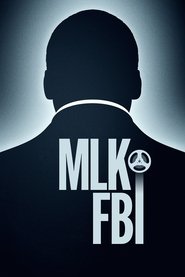 Based on newly declassified files the...
Based on newly declassified files the...MLK/FBI 2020
Based on newly declassified files, the film explores the US government’s surveillance and harassment of Martin Luther King, Jr.
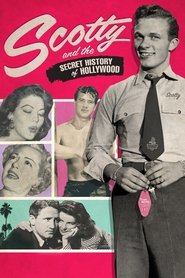 A deliciously scandalous portrait of unsung...
A deliciously scandalous portrait of unsung...Scotty and the Secret History of Hollywood 2018
A deliciously scandalous portrait of unsung Hollywood legend Scotty Bowers, whose bestselling memoir chronicled his decades spent as sexual procurer to the stars.
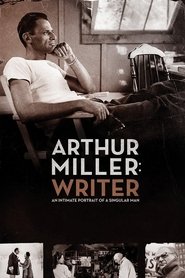 One of the greatest playwrights of...
One of the greatest playwrights of...Arthur Miller: Writer 2017
One of the greatest playwrights of the 20th century, Arthur Miller created such celebrated works as Death of a Salesman and The Crucible, which continue to move audiences around the world today. He also made headlines for being targeted by the House Un-American Activities Committee at the height of the McCarthy Era and entering into a tumultuous marriage with Hollywood icon Marilyn Monroe. Told from the unique perspective of his daughter, filmmaker Rebecca Miller, Arthur Miller: Writer is an illuminating portrait that combines interviews spanning decades and a wealth of personal archival material, and provides new insights into Miller’s life as an artist and exploring his character in all its complexity.
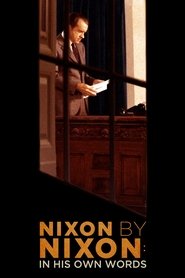 From 1971 to 1973 Richard Nixon secretly recorded...
From 1971 to 1973 Richard Nixon secretly recorded...Nixon by Nixon: In His Own Words 2014
From 1971 to 1973, Richard Nixon secretly recorded his private conversations in the White House. This film chronicles the content of those tapes, which include Nixon's conversations on the war in Vietnam, the Pentagon Papers leak, his Supreme Court appointments, and more--while also exposing shocking statements he made about women, people of color, Jews, and the media.
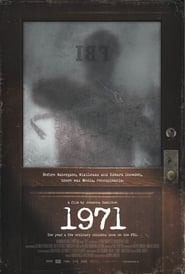 Forty years before WikiLeaks and the...
Forty years before WikiLeaks and the...1971 2014
Forty years before WikiLeaks and the NSA scandal, there was Media, Pennsylvania. In 1971, eight activists plotted an intricate break-in to the local FBI offices to leak stolen documents and expose the illegal surveillance of ordinary Americans in an era of anti-war activism. In this riveting heist story, the perpetrators reveal themselves for the first time, reflecting on their actions and raising broader questions surrounding security leaks in activism today.
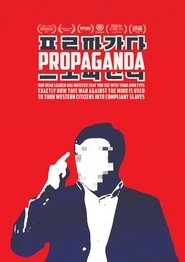 An antiwestern propaganda film about the...
An antiwestern propaganda film about the...Propaganda 2013
An anti-western propaganda film about the influences of American visual and consumption culture on the rest of the world, as told from a North Korean perspective.
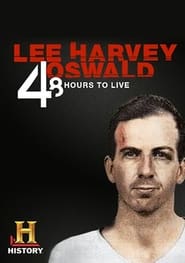 Documentary This special seeks to explain...
Documentary This special seeks to explain...Lee Harvey Oswald: 48 Hours to Live 2013
Documentary - This special seeks to explain the enigmatic Oswald using a brand new approach. No other documentary has exclusively traced Oswald's actions in the minutes, hours and days following the events in Dallas. By shifting the focus on that November weekend, we're able to tell a familiar story in an unfamiliar way, providing a refreshing new perspective on Oswald himself, as well as on the Kennedy assassination. - Michael Baker, Jason Lee Boyson, Sarah Joy Byington
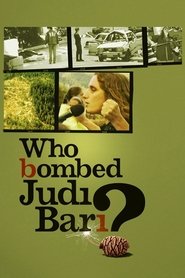 Judi Bari and Darryl Cherney were...
Judi Bari and Darryl Cherney were...Who Bombed Judi Bari? 2012
Judi Bari and Darryl Cherney were falsely arrested for car-bombing themselves on May 24, 1990 while on an Earth First! musical organizing tour for Redwood Summer. They sued the FBI for violations of the First Amendment, claiming the FBI knew they were innocent but arrested them to try to silence them. Having survived the bomb but now stricken by cancer, Judi Bari, a leader of the movement to save California's old growth redwoods, gives her on-camera, deathbed testimony about the attempt on her life and her colorful organizing history with the radical environmental movement Earth First.
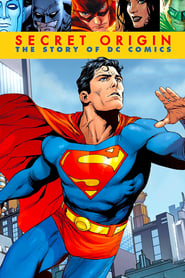 A look at the history of...
A look at the history of...Secret Origin: The Story of DC Comics 2010
A look at the history of the comic book publication that launched such legendary characters as Superman, Batman and Wonder Woman.
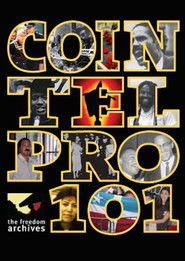 COINTELPRO 101 exposes illegal surveillance disruption and...
COINTELPRO 101 exposes illegal surveillance disruption and...COINTELPRO 101 2010
COINTELPRO 101 exposes illegal surveillance, disruption, and outright murder committed by the US government in the 1950s, 60s, and 70s. “COINTELPRO” refers to the official FBI COunter INTELigence PROgram carried out to surveil, imprison, and eliminate leaders of social justice movements and to disrupt, divide, and destroy the movements as well. Many of the government's crimes are still unknown. Through interviews with activists who experienced these abuses first-hand, with rare historical footage, the film provides an educational introduction to a period of intense repression and draws relevant lessons for the present and future.
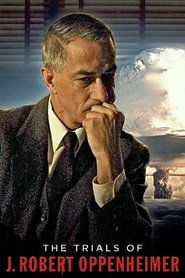 J Robert Oppenheimer was a national...
J Robert Oppenheimer was a national...The Trials of J. Robert Oppenheimer 2008
J. Robert Oppenheimer was a national hero, the brilliant scientist who during WWII led the scientific team that created the atomic bomb. But after the bomb brought the war to an end, in spite of his renown and his enormous achievement, America turned on him - humiliated and cast him aside. The question the film asks is, "Why?"
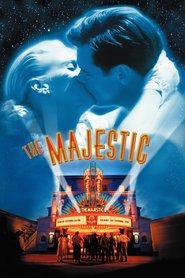 Set in 1951 a blacklisted Hollywood writer...
Set in 1951 a blacklisted Hollywood writer...The Majestic 2001
Set in 1951, a blacklisted Hollywood writer gets into a car accident, loses his memory and settles down in a small town where he is mistaken for a long-lost son.
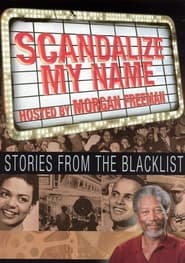 A look at the confluence of...
A look at the confluence of...Scandalize My Name: Stories from the Blacklist 1998
A look at the confluence of the Red Scare, McCarthyism, and blacklists with the post-war activism by African Americans seeking more and better roles on radio, television, and stage. It begins in Harlem, measures the impact of Paul Robeson and the campaign to bring him down, looks at the role of HUAC, J. Edgar Hoover and of journalists such as Ed Sullivan, and ends with a tribute to Canada Lee. Throughout are interviews with men and women who were there, including Dick Campbell of the Rose McLendon Players and Fredrick O'Neal of the American Negro Theatre. In the 1940s and 1950s, anti-Communism was one more tool to maintain Jim Crow and to keep down African-Americans.
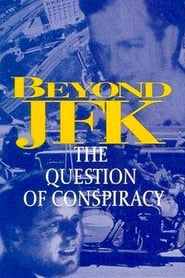 This spellbinding documentary reexamines the issues...
This spellbinding documentary reexamines the issues...Beyond JFK: The Question of Conspiracy 1993
This spellbinding documentary re-examines the issues raised by Oliver Stone's JFK, and explores the late Jim Garrison's contention that there was a "second conspiracy" to cover up the truth, including attempts to ruin his own reputation.
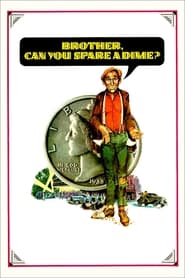 Period music film clips and newsreel...
Period music film clips and newsreel...Brother, Can You Spare a Dime? 1975
Period music, film clips and newsreel footage combined into a visual exploration of the American entertainment industry during the Great Depression.
 Many times during his presidency Lyndon...
Many times during his presidency Lyndon...Hearts and Minds 1974
Many times during his presidency, Lyndon B. Johnson said that ultimate victory in the Vietnam War depended upon the U.S. military winning the "hearts and minds" of the Vietnamese people. Filmmaker Peter Davis uses Johnson's phrase in an ironic context in this anti-war documentary, filmed and released while the Vietnam War was still under way, juxtaposing interviews with military figures like U.S. Army Chief of Staff William C. Westmoreland with shocking scenes of violence and brutality.
 This expose of the US parole...
This expose of the US parole...Parole Fixer 1940
This expose of the U.S. parole system, as seen through the eyes of FBI Director J. Edgar Hoover, takes dead aim on lawyers who manipulate the justice system in order to get undeserving convicts parole from prisons. The point is made when FBI agents are assigned to track down "Big Boy" Bradmore, who after getting an undeserved parole, via the efforts of a shyster lawyer, promptly murders an FBI agent.
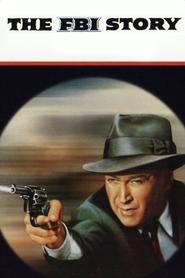 A dedicated FBI agent recalls the...
A dedicated FBI agent recalls the...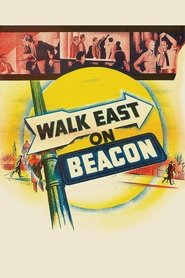 An FBI agent works with a...
An FBI agent works with a...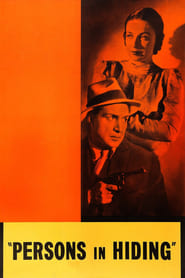 During a stickup a woman is...
During a stickup a woman is...